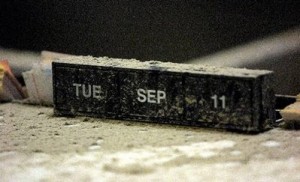 I have been watching a fair amount of Star Trek lately – okay, a lot. The Next Generation specifically, but each of the different series revolves around a basic premise: Mankind has advanced technologically to the point where concerns about materials and resources are mostly extinct. Replicators exist that can construct matter in a manner that can basically spit out anything the user could desire. Crew members of the U.S.S. Enterprise use them mostly for food and drink, but their functionality doesn’t stop there. Presumably they can be used to construct anything physical, be they toys, games, pictures or literature (though antiquated at this future point in time).
I have been watching a fair amount of Star Trek lately – okay, a lot. The Next Generation specifically, but each of the different series revolves around a basic premise: Mankind has advanced technologically to the point where concerns about materials and resources are mostly extinct. Replicators exist that can construct matter in a manner that can basically spit out anything the user could desire. Crew members of the U.S.S. Enterprise use them mostly for food and drink, but their functionality doesn’t stop there. Presumably they can be used to construct anything physical, be they toys, games, pictures or literature (though antiquated at this future point in time).
This technology is not limited to the space-faring crew of the Enterprise, either. The devices are supposedly in use on Earth and on pretty much every colony or space station the Federation lays claim to. According to the Captain of the Enterprise, Jean Luc Picard, without concern for limited resources, humanity now works “to better” themselves.
My question is this: forget about the specific setting of the various Star Trek series for now, and consider your own present time and position. If you were left without want for material or resources, would your current artistic goals, activities and aspirations remain the same? Would they differ at all?
Most writers are certainly not in it for the money, and if they are, they may be a little misguided. It is my experience that for the most part, the effort put in usually greatly outweighs the physical or material gain. I don’t think this is an alien concept to any writer. I’ve been looking for a full-time application for my love of writing and editing, but, in the meantime I write Freelance. The money is often measly. I recently signed up for work on a site that started paying about $1.50 for 200-300 word articles, or, about half of this post. For 200-300 words, if I am writing for a client and not just myself, I would estimate about a half hour to an hour’s work, assuming some sort of research or preparation was going to be involved. Let’s say it takes one half hour from accepting the assignment to completely finishing and submitting an edited piece. That is still about $3.00 an hour. Not exactly rock star money.
On the other end of the spectrum, writers can stand to make quite a bit of money. One need only look no further than the likes of J.K. Rowling or Stephen King. There is no point trying to break down exactly how much those two make, it would only make the rest of us feel bad.
My point is, whether we are making $3.00 an hour, or substantially more, many of us probably began pursuing publication with the dream of making a career of it. Take it back to my original question: without material concern, would we still continue to write? Would we write simply for the art of it, as a means to better ourselves and society?
Personally, I cannot see myself writing as much as I currently do. I am sure I would probably still be drawn to it, but would I really be motivated to hone my craft to a razor’s edge, “just because”? I think that without the challenge to see exactly how far I can take it, or the starry-eyed visions of a day when I’ve hurtled every obstacle to cross some oft dreamed of finish line, writing would lose some of its meaning to me.
Are any of you like me? In a Trek-like future, would you be the terry-cloth robed hedonist devouring barbeque rib after barbeque rib, or would your ideals win out? Would you be able to overlook the lack of a materialistic challenge and continue producing your art for its own sake, and with as much vigor?


